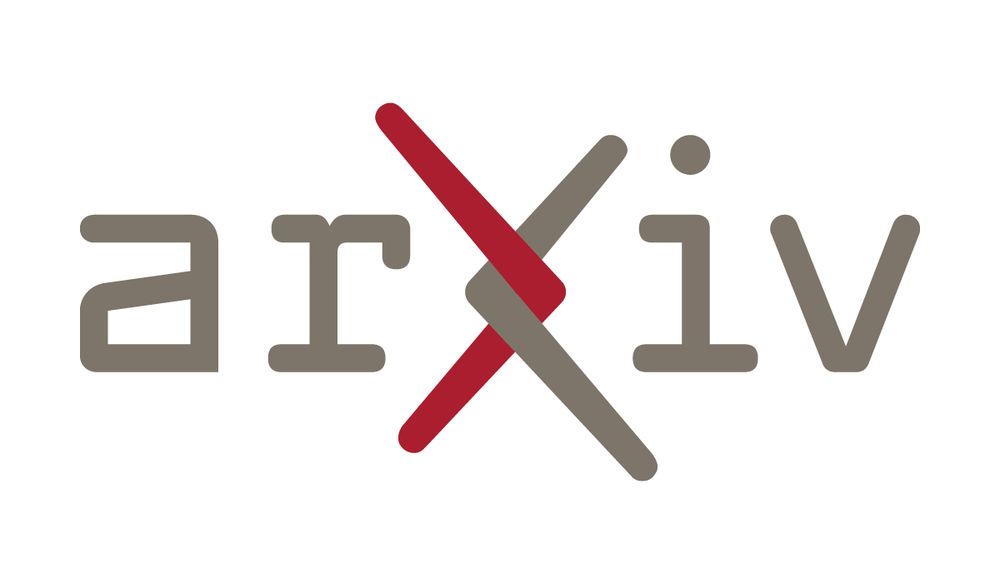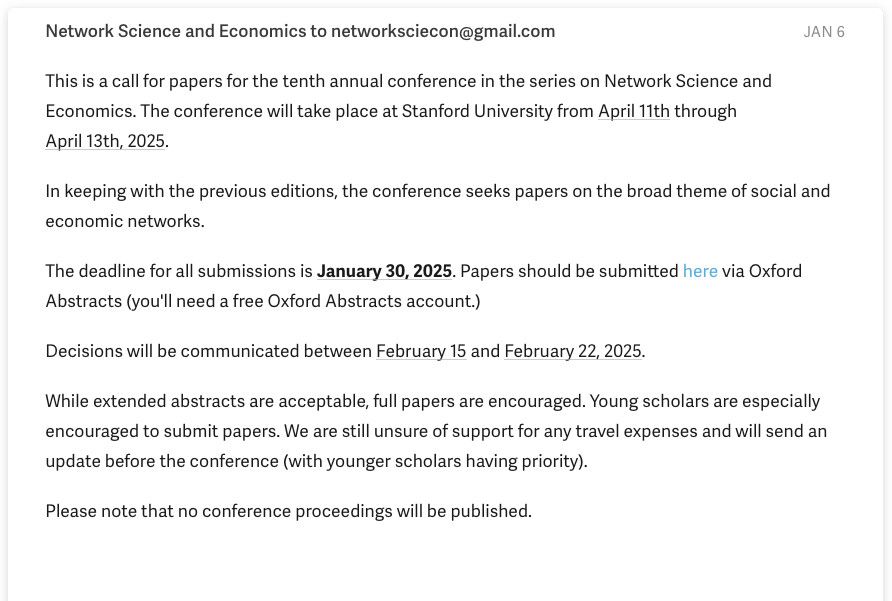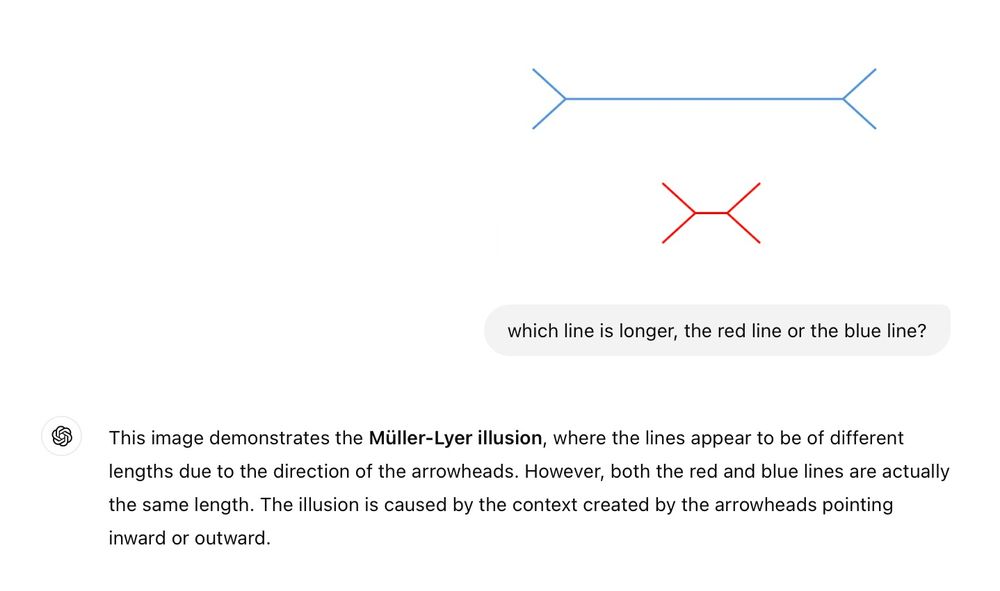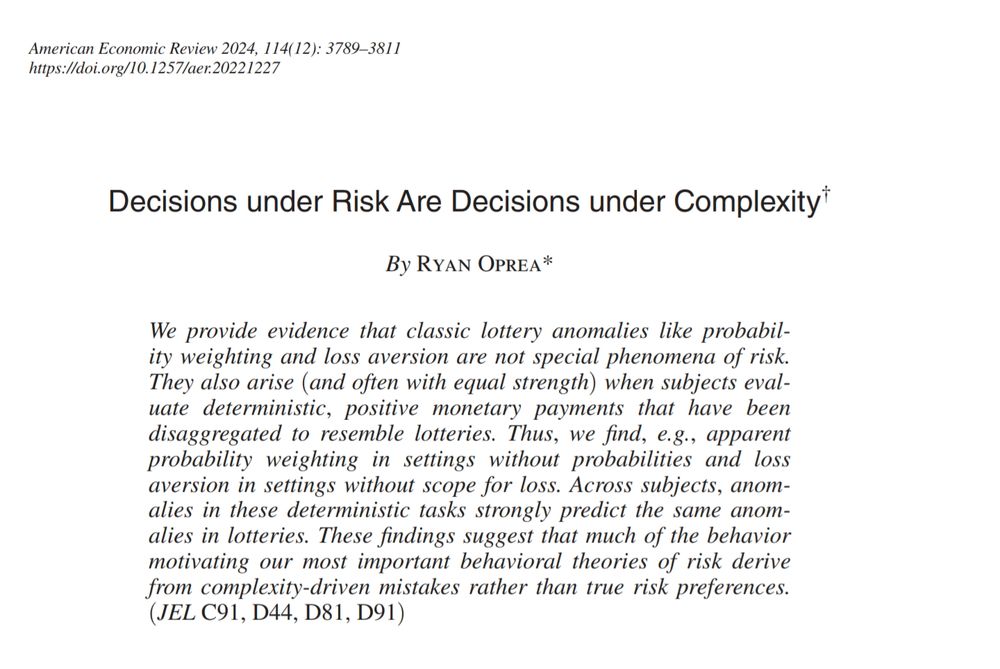Nick Tenev
@nten.bsky.social
Economist (labor, finance, networks). Views here are my own. https://tenevn.github.io
Pinned
Nick Tenev
@nten.bsky.social
· Sep 24
Echo chambers trade usefulness for credibility. It’s reasonable to place more trust in those who agree with you, but they don’t let you know when you’re wrong.
New version of our paper on echo chambers is posted, and it has a couple new results. The first is about inequality of beliefs (1/n) arxiv.org/abs/2010.01249

Optimal Echo Chambers
When learning from others, people tend to focus their attention on those with similar views. This is often attributed to flawed reasoning, and thought to slow learning and polarize beliefs. However, w...
arxiv.org
June 29, 2025 at 10:21 PM
New version of our paper on echo chambers is posted, and it has a couple new results. The first is about inequality of beliefs (1/n) arxiv.org/abs/2010.01249
To be fair, one reason for the disconnect in appreciation for LLMs is that coding has always been unreasonably pedantic in a way that is probably hard to appreciate until you've wrestled with it
April 27, 2025 at 6:06 AM
To be fair, one reason for the disconnect in appreciation for LLMs is that coding has always been unreasonably pedantic in a way that is probably hard to appreciate until you've wrestled with it
Reposted by Nick Tenev
PLEASE RT :)
Submit to the annual Network Science and Economics Conference, the largest US event for network theory and empirical research in and adjacent to economics
Deadline Jan 30 (soon!)
Conference Apr 11-13 at Stanford
Submit to the annual Network Science and Economics Conference, the largest US event for network theory and empirical research in and adjacent to economics
Deadline Jan 30 (soon!)
Conference Apr 11-13 at Stanford

January 17, 2025 at 10:40 PM
PLEASE RT :)
Submit to the annual Network Science and Economics Conference, the largest US event for network theory and empirical research in and adjacent to economics
Deadline Jan 30 (soon!)
Conference Apr 11-13 at Stanford
Submit to the annual Network Science and Economics Conference, the largest US event for network theory and empirical research in and adjacent to economics
Deadline Jan 30 (soon!)
Conference Apr 11-13 at Stanford
Some real interesting papers in this session “Neurofinance, Cognition” today, pushing on the idea that seeming departures from rational behavior wrt risk are actually just evidence of cognitive constraints, like limits on memory or attention
American Economic Association
www.aeaweb.org
January 4, 2025 at 2:52 AM
Some real interesting papers in this session “Neurofinance, Cognition” today, pushing on the idea that seeming departures from rational behavior wrt risk are actually just evidence of cognitive constraints, like limits on memory or attention
One week left to submit your research on AI/ML use in banking and finance to the OCC’s symposium next June! Submit here by Dec. 15:
www.occ.gov/news-issuanc...
#econsky
www.occ.gov/news-issuanc...
#econsky

OCC Solicits Research on Artificial Intelligence in Banking and Finance
The Office of the Comptroller of the Currency (OCC) is soliciting academic research papers on the use of artificial intelligence in banking and finance for submission by December 15, 2024.
www.occ.gov
December 8, 2024 at 2:10 AM
One week left to submit your research on AI/ML use in banking and finance to the OCC’s symposium next June! Submit here by Dec. 15:
www.occ.gov/news-issuanc...
#econsky
www.occ.gov/news-issuanc...
#econsky
These examples of when AI screws up easy questions because of their similarity to well known trick questions reminds me of the classic test-taking technique: they’d never ask this question if the answer were A instead of B
thinking of calling this "The Illusion Illusion"
(more examples below)
(more examples below)

December 1, 2024 at 7:32 PM
These examples of when AI screws up easy questions because of their similarity to well known trick questions reminds me of the classic test-taking technique: they’d never ask this question if the answer were A instead of B
Always relieving to learn a behavioral anomaly was just two cognitive constraints in a trench coat all along
Some of the most important lottery anomalies from the behavioral risk literature (e.g., probability weighting and loss aversion) actually have nothing to do with risk.
They also arise in perfectly deterministic settings.
Lead article in the latest AER issue:
www.aeaweb.org/articles?id=...

November 29, 2024 at 6:50 PM
Always relieving to learn a behavioral anomaly was just two cognitive constraints in a trench coat all along
Echo chambers trade usefulness for credibility. It’s reasonable to place more trust in those who agree with you, but they don’t let you know when you’re wrong.
September 24, 2024 at 3:13 AM
Echo chambers trade usefulness for credibility. It’s reasonable to place more trust in those who agree with you, but they don’t let you know when you’re wrong.
Referee reports on papers are famously negative, but one I’m looking at now includes the phrase “In the future (if any)…” which surely deserves some kind of prize for pessimism
April 1, 2024 at 5:50 PM
Referee reports on papers are famously negative, but one I’m looking at now includes the phrase “In the future (if any)…” which surely deserves some kind of prize for pessimism
Tiny bit of practical math: if you have more than one type of wine glass you want to store in a line, it saves space to alternate
February 17, 2024 at 9:39 PM
Tiny bit of practical math: if you have more than one type of wine glass you want to store in a line, it saves space to alternate
I liked reading the recent pieces on free will (apparently still a debate!), but they seem to imply that free will is necessary to make choices, or respond to incentives. www.nybooks.com/articles/202...

The Fate of Free Will | James Gleick
Nobody was holding a gun to your head when you started reading this. You made a choice. Surely it felt that way, at least. A sense of agency—of control
www.nybooks.com
February 6, 2024 at 1:31 AM
I liked reading the recent pieces on free will (apparently still a debate!), but they seem to imply that free will is necessary to make choices, or respond to incentives. www.nybooks.com/articles/202...

